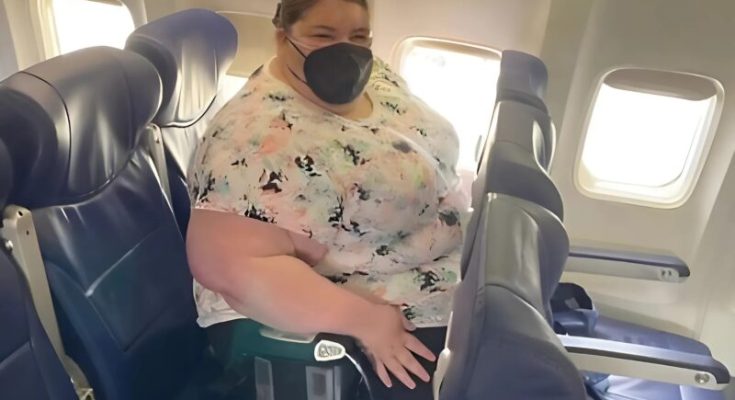Settling into my seat, I felt a familiar sense of anticipation for the journey ahead. Flying was something I had always enjoyed—not just for the thrill of being airborne, but for the moments of peace it sometimes offered amidst a busy life. This time, I had taken the extra step of purchasing not one, but two seats. It was a decision born of self-respect and a desire for personal space. Being comfortable and undisturbed was important, particularly on a long flight, and I believed it was a reasonable expectation when one pays for two tickets.
The plane filled up quickly, passengers bustling to store their overhead luggage and find their seats. As I glanced around the cabin, I noticed a woman approaching with a young child in tow, her eyes scanning the seat numbers. My internal sense of calm quickly shifted when they stopped at my row. Without so much as a word, she lifted her child into the seat beside me—my second seat—and prepared to sit herself. I took a deep breath, determined to handle the situation with calm and clarity.
Politely but firmly, I pointed out that both seats were mine, showing her the boarding passes and explaining that I had purchased both. She brushed it off, insisting that they needed seats and seemed to feel entitled to take up the space. I felt a knot of frustration tightening in my stomach but kept my tone even.
At that moment, I decided to call for assistance. I pressed the call button, summoning a flight attendant, and calmly explained the situation. I provided both boarding passes as evidence, outlining clearly that I expected the issue to be resolved appropriately. “Either you find this passenger and her child other seats,” I said with unwavering resolve, “or I’ll ask for the captain to be called, and an official report to be made for interfering with paid seats. This violates transport regulations.”
What happened next was unexpected but straightforward. The flight attendant listened attentively, nodded, and called the senior flight crew to intervene. After a brief discussion with the captain, it was decided. The woman and her child were escorted off the plane. As they left, murmurs rippled throughout the cabin—whispers churning in the wake of the incident. I overheard snippets of conversation; some passengers recalling similar disruptions or scams.
Apparently, she had done this before—luck seeming to favor her the previous times. But today was different. Today, I stood my ground. As the aircraft prepared for takeoff, the space beside me remained blissfully empty, the silence offering a welcome reprieve from the earlier tension. A few fellow passengers even apologized for the disruption, nodding sympathetically and acknowledging the awkwardness of the moment. However, many simply looked away, absorbed in their phones or books, preferring distance from the confrontation.
Purchasing two seats hadn’t been an impulsive decision for me—it was about valuing myself and ensuring that I could travel comfortably, respecting not only my needs but also those of the passengers around me. The seats were not a donation to be offered up or taken without prior arrangement. It wasn’t about being heartless or unkind; it was about expecting a certain level of respect and honoring the transaction I willingly entered into.
The episode left me with a complex feeling—a mixture of relief, resolution, and lingering contemplation. Yet, underlying it all was a strong sense of affirmation. Sometimes, standing firm isn’t about making a scene; it’s about quietly asserting your rights with dignity. Flying home that day, I felt a reassuring satisfaction—knowing I had acted respectfully but assertively, standing up for myself in a situation that could have taken an entirely different turn.





